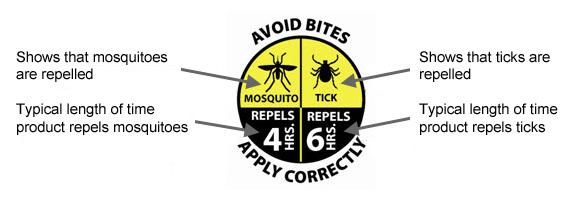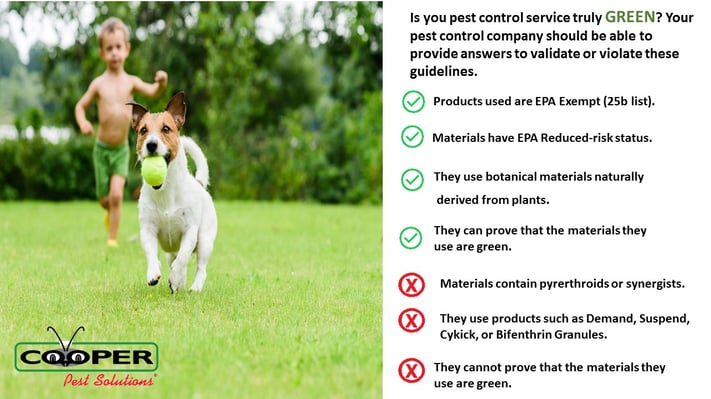Natural pest repellents are EPA registered Natural Compound-based Products used to avoid interactions with common insects such as ticks and mosquitoes. As a consumer, it’s very important to stay informed of the ingredients that you are using to keep insects away from your body.
What are natural pest repellents?
The Environmental Working Group research indicates that “botanically based bug repellents are not often the best choice. The most common contain castor oil, cedar oil, citronella oil, clove oil, geraniol oil, lemongrass oil, peppermint oil, rosemary oil and soybean oil. While effectiveness varies, and there may be a few exceptions, most botanicals repel bugs for a short time, if at all.” Packaging with claims of “organic” and “botanical” repellents may be appealing, but effectiveness is not proven by the EPA and cannot always support these buzz words with compelling data.
Why choose natural repellents?
Using a natural repellent is important to protect yourself from bites, welts, and diseases carried by mosquitoes and ticks especially in the New Jersey and Pennsylvania area. Since there are increased levels of mosquito and tick activity locally this year, you could be exposed to diseases such as Lyme disease, the Powassan virus, and others. Choosing a bug spray is an important precaution that you should take before spending your time outdoors this summer.

EPA Approved Repellency Awareness Graphic
The EPA has created a Repellency Awareness Graphic that can be used on skin-applied insect repellents to indicate the proper use for the maximum effect.To use this graphic on their products, “a company must provide new or cite existing scientific data to support their proposed graphic that EPA will evaluate to ensure that their scientific data meet current testing protocols and standard evaluation processes.” This will help you, the consumer, choose what product will work best for you.
To learn more about the Repellency Awareness Graphic, visit the EPA information page.
What ingredients repel bugs?
- Nepeta Cataria – Also known as Catmint or Catnip Oil. This product is made to repel black flies, mosquitoes and other biting insects.
- Citronella Oil – Repels several biting insects including mosquitoes. Masks the scents on your body that may attract insects.
- DEET – Used to repel mosquitoes and ticks. Creates a scent barrier on your skin that insects find unattractive.
- IR 3535 – Repels mosquitoes, deer ticks, body lice, and biting flies.
- Lemon Eucalyptus Oil – Naturally derived ingredient from eucalyptus plants. Used to repel mosquitoes, biting flies, and gnats.
It’s important to note that the EPA does not require botanically based repellents to be registered. This leaves a lot of “natural” or “organic” products on the market with limited data to confirm their “green” claims. However, lemon eucalyptus oil has undergone careful examination for effectiveness and remains approved by the EPA as highly effective and of minimal risk.
How to choose the best bug repellent for you
Choosing the proper repellent can save you a lot of aggravation and unwanted bug bites. If you are planning a trip, we recommend that you research the location that you intend to visit. Is it a high risk area for Lyme disease? Are there large populations of mosquitoes? These factors are very important in deciding what repellent will be the best fit for you.
What works?
- Bug spray – Sprays containing approved active ingredients such as DEET are most likely to be effective. Always be sure to read instructions and guidelines thoroughly before application.
- Repellent clothing- Pre-treated clothing such as ExOfficio BugsAway do not contain repellents, but are treated with permethrin, made to kill ticks on contact. The toxicity and negative chemical interactions with human skin is up for debate, it is possible to be effective in protecting you from tick bites.
The Environmental Working Group found that “in a pilot study [of Exofficio BugsAway clothing], 16 North Carolina state employees in outdoor occupations chose between treated clothing or repellents. The group that used repellents received 62 tick bites. Among the group who wore treated clothing, one person had one tick bite (Vaughn & Meshnick 2011).”
- Covering up – The simplest way to prevent bug bites is to cover up exposed skin when spending time outside.
What doesn’t work well?
- Bracelets – Bands on your wrists do not offer coverage to your legs and ankles. They are often infused with citronella oils which are typically not very effective.
- Sunscreen mixed with repellent – Sunscreen should be reapplied every 2 hours. This is too frequent for repellent application and can become dangerous.
- Aerosol sprays in pressurized containers – You also risk inhaling the spray and risk getting it into your eyes and on your face.
The EPA provides an online tool to help find the best insect repellent for your needs, which you can find here.
Does Cooper provide natural pest control?
Cooper Pest Solutions provides a Green Service to our clients. Green means that we use botanical, eco-friendly, natural, and organic materials to effectively control and eliminate over 20 common household pests. Our services were designed with protecting the health of your children and pets in mind.

To learn more about our Green Home Services, visit our webpage here.

